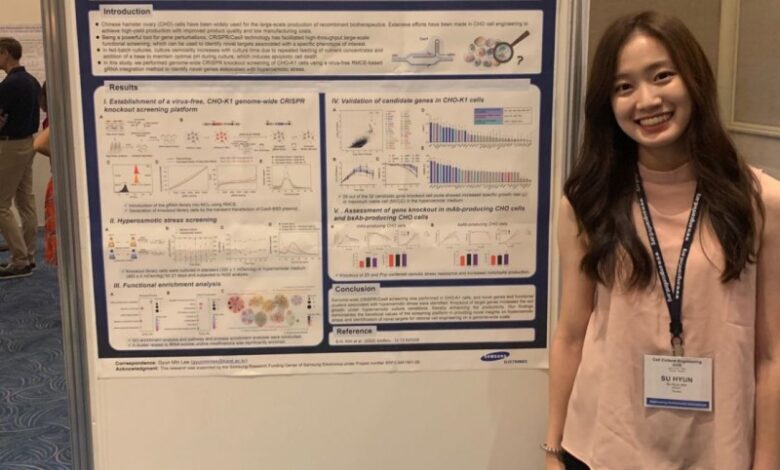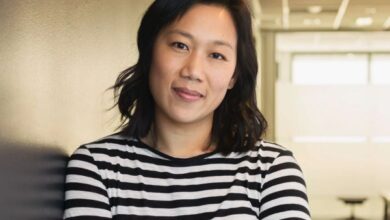Su Hyun Kim: A Rising Star in Mammalian Cell Engineering at UC San Diego

In the rapidly evolving field of mammalian cell engineering, one name gaining significant attention is Su Hyun Kim. Currently a postdoctoral researcher at the University of California, San Diego (UCSD), Su Hyun Kim is making remarkable strides in her research and career. With a strong educational background rooted in South Korea’s prestigious Korea Advanced Institute of Science and Technology (KAIST), her work bridges cutting-edge biotechnology and practical applications in animal cell engineering. This article delves deeply into Su Hyun Kim’s academic journey, professional experiences, and contributions to science, providing a comprehensive profile of her as a leading researcher in her field.
Who Is Su Hyun Kim?
Early Life and Academic Background
Su Hyun Kim began her academic journey in biological sciences, completing her Bachelor’s degree at KAIST, one of South Korea’s premier science and technology institutions. Her dedication and passion for biological sciences led her to continue at KAIST, where she pursued a Doctor of Philosophy (PhD) degree specializing in animal cell engineering—a branch of biotechnology focused on modifying and optimizing the behaviour of animal cells for various applications, including pharmaceuticals, tissue engineering, and synthetic biology.
During her doctoral studies from March 2018 to August 2023, she developed deep expertise in manipulating mammalian cells, especially in enhancing cell lines for improved productivity and stability. This foundation positioned her as a promising expert ready to contribute to global biotechnology advancements.
Education Journey
Bachelor’s Degree in Biological Science
Su Hyun Kim’s undergraduate years at KAIST (March 2014 – February 2018) laid the groundwork for her specialization. The curriculum provided a robust understanding of cellular biology, genetics, and biochemistry. Her academic performance and research interests soon directed her toward advanced studies in animal cell engineering, reflecting her commitment to pushing the frontiers of mammalian cell technologies.
Ph.D. in Animal Cell Engineering
Her doctoral tenure at KAIST (March 2018 – August 2023) was characterized by extensive research in mammalian cell engineering, with a focus on developing techniques to enhance cell line resilience and functionality under various environmental stresses. Her Ph.D. work explored innovative methods for engineering Chinese hamster ovary (CHO) cells—a commonly used cell line in biopharmaceutical production—by applying gene-editing technologies, such as logic like CRISPR/Cas9, to understand and manipulate cellular responses to stress conditions.
This level of expertise equipped her with both theoretical knowledge and practical skills critical for advancing biotechnological applications, particularly in manufacturing biologics such as monoclonal antibodies and vaccines.
Professional Experiences
Postdoctoral Researcher at KAIST
Following her Ph.D., Su Hyun Kim briefly continued at KAIST as a postdoctoral researcher from September 2023 to February 2024. During this time, she deepened her research on mammalian cell engineering, collaborating with multidisciplinary teams to optimize cell lines for industrial applications. This period allowed her to refine her experimental approaches and expand her academic network.
Postdoctoral Researcher at UC San Diego
In April 2024, Su Hyun Kim transitioned to a prestigious postdoctoral position at the University of California, San Diego (UCSD), a leading research university renowned for its contributions to biotechnology and biomedical sciences. Her current role involves advanced mammalian cell engineering projects within the University of California, San Diego’s (UCSD) dynamic scientific community.
At UCSD, she is actively engaged in investigating the cellular mechanisms of stress tolerance and gene regulation in mammalian cells. Her research has significant implications for improving the stability and efficiency of cell-based production systems, which are vital for the biopharmaceutical industry. Furthermore, UCSD offers her an environment rich in resources and interdisciplinary collaboration, amplifying the potential impact of her work.
Research Focus and Contributions
Mammalian Cell Engineering
Mammalian cell engineering is a specialized field that focuses on modifying animal cells to enhance their functions for research, medical, or industrial purposes. Su Hyun Kim’s work exemplifies this by focusing on Chinese hamster ovary (CHO) cells, which are widely used in the production of therapeutic proteins.
Her research addresses key challenges, such as how cells react to hyperosmotic stress—conditions where cells experience changes in solute concentration that can affect their viability and productivity. By using CRISPR-based gene-editing tools, she identifies genes that govern stress responses, aiming to engineer cell lines that maintain high productivity even under stressful culture conditions.
Impact on Biopharmaceutical Manufacturing
The outcomes of Su Hyun Kim’s research are highly relevant to the pharmaceutical industry. Enhanced CHO cell lines lead to more reliable and cost-effective production of biological drugs, including monoclonal antibodies and vaccines. This has broad implications for treating diseases ranging from cancer to autoimmune disorders.
Her contributions help address bottlenecks in drug manufacturing, improving yield and consistency, which ultimately benefits patients through better access to critical medicines.
Why Su Hyun Kim’s Work Matters
Bridging Basic Science and Industry
Su Hyun Kim’s research exemplifies the vital link between fundamental cellular biology and practical industry applications. By uncovering molecular pathways that affect cell behaviour, she contributes knowledge that directly informs cell line development for biomanufacturing.
Advancing Global Biotechnology
Her transition from KAIST to UCSD reflects a global collaboration in scientific research. It highlights the importance of international research exchanges in accelerating innovation. As biotechnology continues to evolve, researchers like Su Hyun Kim play crucial roles in sustaining the pace of discovery and application.
The Path Ahead for Su Hyun Kim
Given her strong educational background and promising research trajectory, Su Hyun Kim is poised for a notable career in biotechnology. Her work at UCSD offers opportunities for further breakthroughs in mammalian cell engineering.
In the coming years, she is expected to expand her research portfolio, publish in high-impact journals, and potentially lead independent projects or research groups. Her expertise will continue to support advances in biopharmaceutical production, personalized medicine, and synthetic biology.
Summary
Su Hyun Kim is an emerging leader in the field of mammalian cell engineering with a solid academic foundation from KAIST and cutting-edge research experience at UC San Diego. Her journey from a biological sciences undergraduate to a Ph.D. scholar and postdoctoral researcher reflects a commitment to advancing biotechnology through innovative cell engineering techniques.
Her work not only contributes to the scientific understanding of cell stress responses but also holds practical promise for enhancing the efficiency of biopharmaceutical manufacturing. As a dedicated researcher, Su Hyun Kim embodies the fusion of rigorous science and impactful application, making her a notable figure in her field and a researcher to watch.
Also Read: The Remarkable Career of Shirley Kaltenberg, A Pioneer in Event Planning from Wisconsin
Final Thoughts
In the competitive and fast-moving world of biotechnology, talent like Su Hyun Kim’s is invaluable. Her blend of education, experience, and research focus positions her at the forefront of mammalian cell engineering. Her ongoing contributions at UCSD and future endeavours will likely shape the future of biomanufacturing and therapeutic development.



